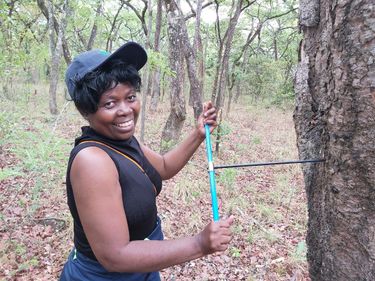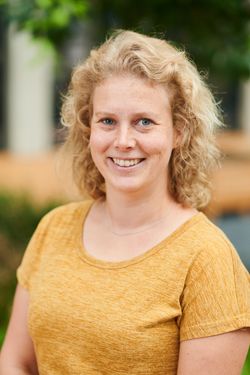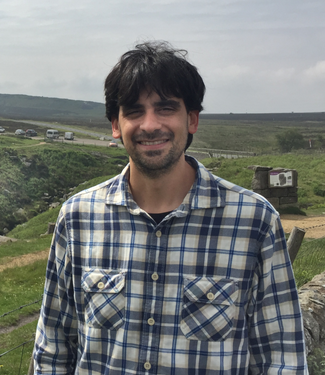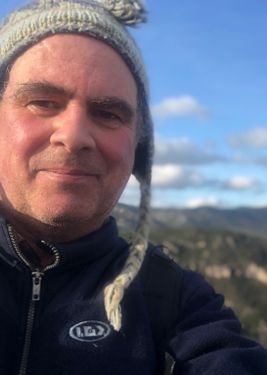
Sessions in which Jeanne Rezsöhazy participates
Thursday 30 June, 2022
Tree-ring widths represent the most commonly used proxy to reconstruct the climate of the last millennium at high resolution, thanks to their large-scale availability. The approach often relies on a relationship between tree-ring width series and climate estimated on the basis of a linear regression. The underlying linearity and stationarity assumptions may be inadequate. Dendroclimatic process-based models, such as MAIDEN, may be able to overcome some of the limitations of the statistical...
Sessions in which Jeanne Rezsöhazy attends
Monday 27 June, 2022
Free, in person and onlineThe stable isotopic compositions of carbon and oxygen (d13C and d18O) measured in tree rings are valuable proxies for reconstructing paleoclimate and are increasingly used as paleophysiological proxies. Applying these proxies in ecophysiology and paleoclimate can be challenging as they rely on complex process-based models and poorly constrained input data. In recent years, h...
Meet colleagues and friends in an informal settingFree drinks for all!
Tuesday 28 June, 2022
Africa is faced with a number of challenges including climate change and ecological disturbance due to various anthropogenic activities. These problems adversely affect the forests and also ecosystem services. My appreciation for the forests motivated me to pursure my undergraduate studies in Forestry. I first applied dendrochronology during my PhD research which focused on understanding the climate change vulnerability of the Zambezi teak forests in Zambia. However, lack of research facil...
Tree-ring time series provide long-term, annually resolved information on the growth of individual trees. However, public tree-ring archives contain a considerable portion of data collected from trees that have been selected with specific research questions in mind (e.g., for climate reconstruction). This makes these archives a biased representation of the sensitivity of forest ecosystems to ongoing climate variation (e.g. temperature, precipitation), including non-stationarity (i.e....
Tree-ring time series provide long-term, annually resolved information on the growth of individual trees. However, public tree-ring archives contain a considerable portion of data collected from trees that have been selected with specific research questions in mind (e.g., for climate reconstruction). This makes these archives a biased representation of the sensitivity of forest ecosystems to ongoing climate variation (e.g. temperature, precipitation), including non-stationarity (i.e....
Wednesday 29 June, 2022
Dendrochronology is considered one the most precise of all the scientific dating techniques. However, it requires long sequences of tree rings and a master record for both the species and region in question. At the University of Groningen, we have been pioneering a new approach to dating that combines the precision of dendrochronology with the versatility of radiocarbon dating. It relies on the detection of spikes in the annual radiocarbon record, thought to b...
Information garnered from historical timbers and wooden artifacts (e.g. houses, barns, ships) can greatly enhance our understanding of human, ecological, and climate history, especially in regions where few old-growth forests and trees remain, tree longevity is relatively short (less than 300-400 years), and environmental conditions break down wood rather quickly, like in mesic to wet regions. Over the last decade plus, the application of tree-ring techniques on wo...
Information garnered from historical timbers and wooden artifacts (e.g. houses, barns, ships) can greatly enhance our understanding of human, ecological, and climate history, especially in regions where few old-growth forests and trees remain, tree longevity is relatively short (less than 300-400 years), and environmental conditions break down wood rather quickly, like in mesic to wet regions Over the last decade plus, the application of tree-ring techniques on woo...
Presentation of all Ameridendro2022 posters.FREE LUNCH FOR ALL ATTENDEES!
This is a mandatory (!) .... and FREE (!!) cocktail & award ceremony (!!!)(in replacement of the Banquet formula)->->->->->->->->->->->->->->->->->->After a great summer day of scientific and urban discoveries in our beloved MTL, we wish to bring together all the AmeriDendro community in one place and congratulate the TRS awardees for their remarkable achievements! -Bonsinsegna award-Fr...
Thursday 30 June, 2022
How old are tropical trees? This fundamental question has long driven the curiosity of laymen and scientists. But only recently, a great number of studies conducted by many brave dendrochronologists resulted in a significant tree-ring-based knowledge that allows us to start accurately estimating tree ages across the globe. As science goes, not only knowing the longevity of tropical trees is essential to understanding forest dynamics and its role in biogeochemical cycles, but one must also ...
Dendrochronological archives in the tropics of the Americas have been under-studied for a long time. Some of the challenges include the Identification of tree-ring boundaries in certain tree species, absence of winter dormancy associated to low temperatures in most of the cases, and logistic difficulties of fieldwork in remote sites. However, part of the slow progress is also related to the fact that historically much less resources have been inv...
A gap of millennial tree-ring data suitable for dendroclimatology has long been evident in the North American boreal forest. In my talk, I will describe the adaptive approach we have developed to build and improve a data network for millennial dendroclimatology in the eastern Canadian taiga. Recurrence of stand replacing wildfires is the most important constrain to the elaboration of long tree ring chronologies, which can only be developed away from regions ...
The interpretation of stable isotopes in a dendroecological framework can provide powerful insights into how trees adjust physiologically in response to the environment. This symposium aims to bring together researchers who use stable isotopes in tree rings to address ecophysiological responses to environmental changes from intra-annual to multi-decadal resolution. We hope this symposium will enable fruitful discussions and new ideas a...
Allies have emerged as key enablers of diversity and inclusivity initiatives in the workplace, in professional associations, and in everyday life. But what is an ally? What skills are required to be an effective ally? How do we hold ourselves and our community members accountable for being effective allies? This symposium will provide a deeper understanding of what it means to be an ally and the skills to help advance allyship as individuals and as a community. Fur...





